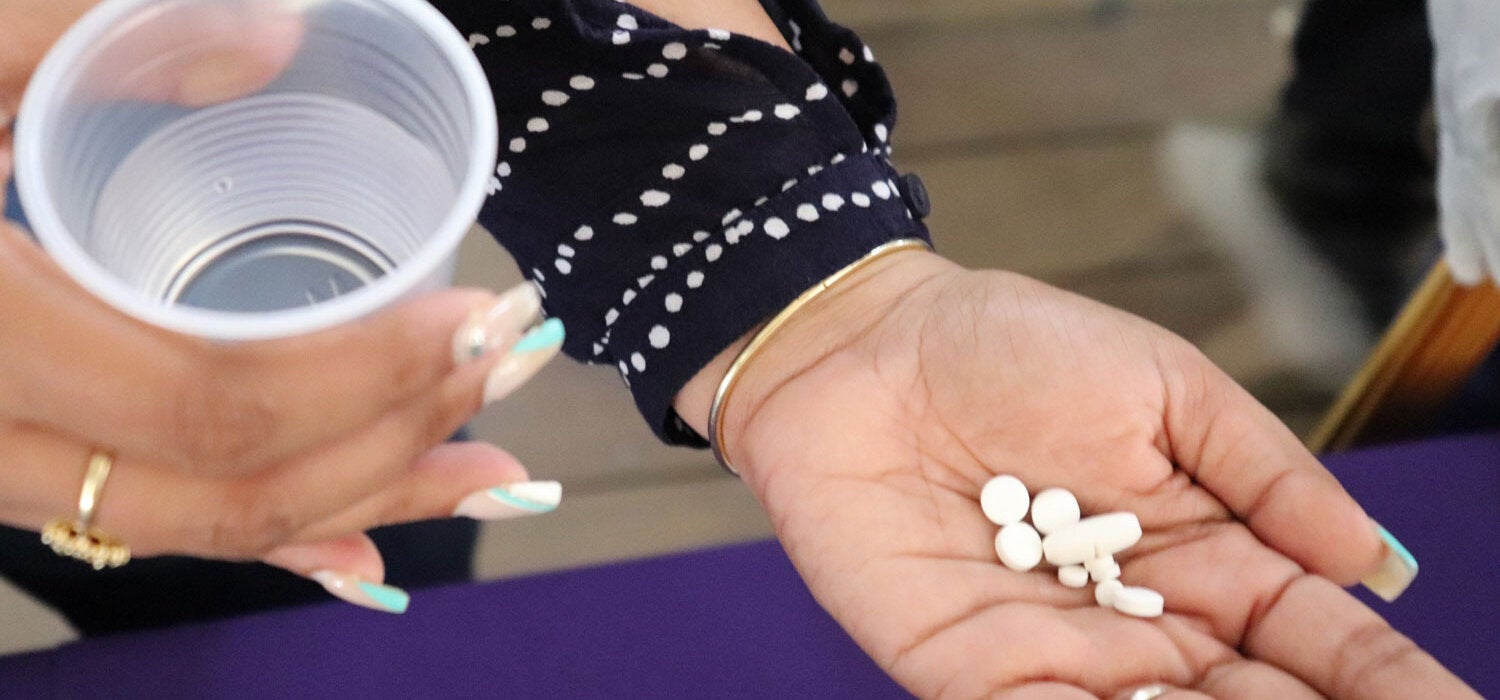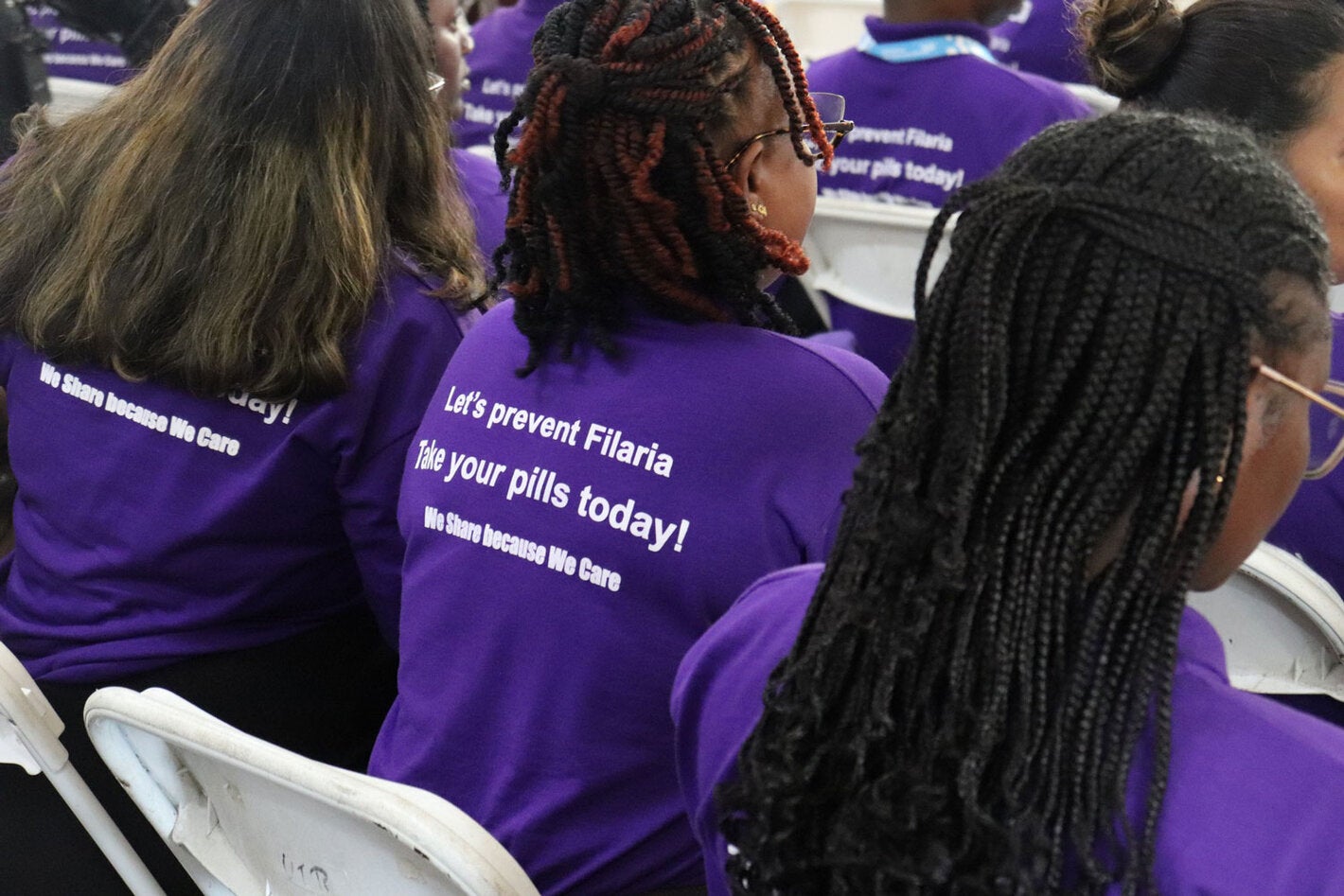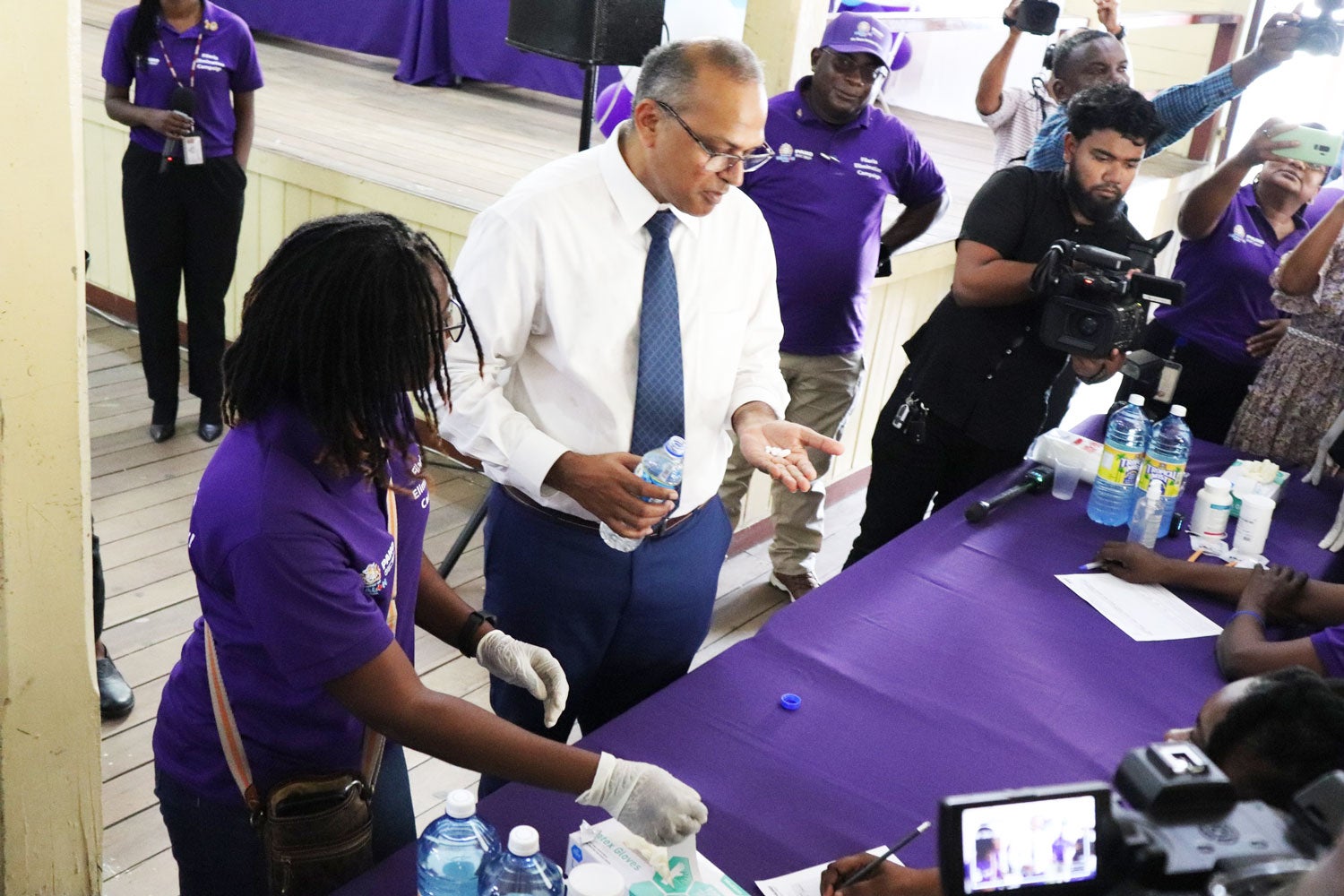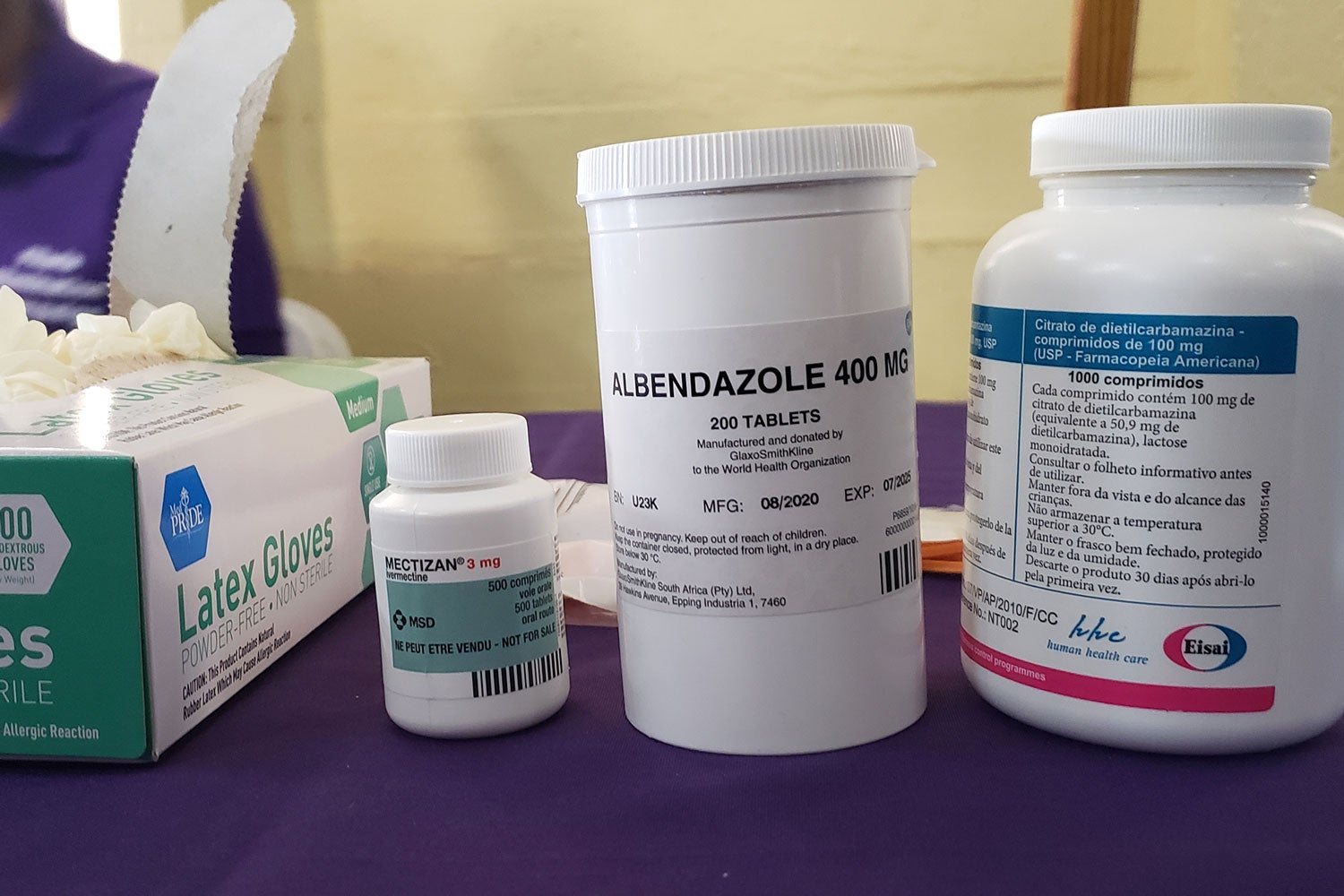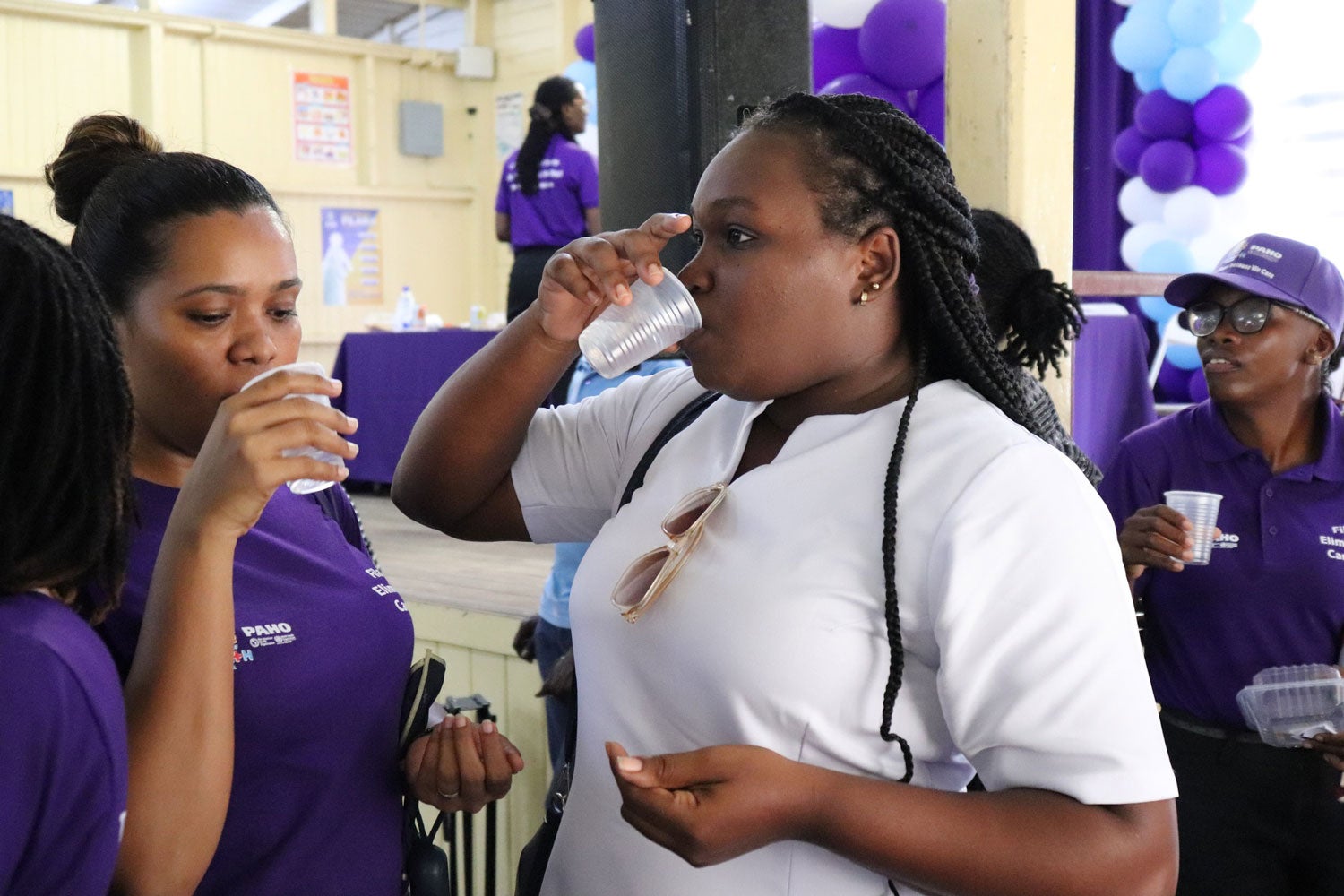Lymphatic filariasis, commonly known as elephantiasis, is a neglected infectious disease that remains endemic in four countries of the Americas, including Guyana. Infection occurs when parasites are transmitted to humans through mosquitoes and cause hidden damage to the lymphatic system. Symptoms usually present later in life and include lymphoedema (elephantiasis), and hydrocele (scrotal swelling), which can lead to permanent disability, and stigmatization.
“Guyana is a leading force in public health in the Region of the Americas and one of the first countries to champion integrated disease elimination,” Daniel Albrecht, acting PAHO Representative in Guyana, said.
Speaking at the MDA launch, Albrecht highlighted that when health workers and volunteers visit communities to distribute the pills, it is crucial they stress that households are not only participating in the MDA for their country but also contributing to the health and wellbeing of their families.
“In Guyana, we have five neglected infectious diseases, and our aim is to eliminate all of them, including leprosy and lymphatic filariasis,” Dr. Frank Anthony, Minister of Health of Guyana, said. Underscoring the importance of effective interventions, such as the MDA, he added that “if we minimize the number of infectious diseases we have to deal with, we will have more resources for other issues.”
This latest round of the MDA is a step forward towards the elimination of lymphatic filariasis as a public health problem in the country. For all rounds so far, the country has followed a triple drug regimen called IDA which includes Ivermectin, DEC and Albendazole. The first mass drug administration campaign with IDA was in 2019, the second was implemented in 2021 and the third is ongoing until mid-to-late July. During this third round, 700 trained volunteers and health workers are visiting schools, workplaces and will go door-to-door in regions 3 and 4 to administer the pills over the next two weeks.

